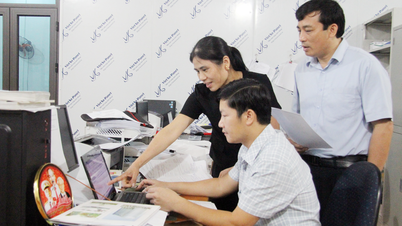
Nutrition is known as food and drinks that are absorbed into the body, converted into nutrients to maintain the functioning of organs and parts, while helping the body increase resistance, prevent acute and chronic diseases, so each person needs to build a suitable nutritional regimen for themselves.
For normal adults, a scientific diet ensures energy needs of about 2,700 calories/day for men and 2,200 calories/day for women. This amount of Kcal depends on the level of physical activity of each person and can be increased or decreased accordingly. In addition, the daily diet must be complete and balanced between groups of substances such as: starch, protein, fat, vitamins and minerals.
Dr. Ly Thi Hong Hai, Deputy Head of the Department of Reproductive Health Care, Lang Son Province Center for Disease Control, said: During pregnancy, the energy needs to maintain activities increase insignificantly in the first 3 months, then in the middle 3 months of pregnancy, it is necessary to increase by 360 kcal/day and in the last 3 months, the energy needs to increase by 475 kcal/day. In addition to the energy needs through protein and fat, pregnant women need to supplement vitamins and minerals to ensure weight gain for the mother as well as ensure the normal development of the fetus.
Nutrition experts recommend: The first 3 months is the stage of formation of organs and tissues of the fetus, so it is necessary to increase protein-rich foods such as meat, fish, eggs, milk, beans. In addition, it is necessary to supplement iron-folic acid tablets to prevent anemia and reduce the risk of neural tube defects. The middle 3 months is the stage of rapid fetal development, especially in terms of the child's skeleton and height, so it is necessary to prioritize the use of foods rich in calcium and zinc such as shrimp, crab and dairy products. The last 3 months is the stage when the fetus gains weight the fastest, so it is necessary to supplement a variety of foods, especially protein and fat, but should not supplement too much to avoid excessive weight gain that can lead to gestational diabetes.
Nutritional care for pregnant women is not simple because each period of pregnancy, the mother's nutritional needs are different. In addition to supplementing nutrition through daily meals with easily digestible foods, pregnant women need to be supplemented with essential trace elements such as iron, zinc, calcium and other acids, amino acids by oral or injection.
Overnutrition or undernutrition can have a negative impact on the health and development of mothers and children. A reasonable diet not only helps mothers maintain their health but also creates a solid foundation for the development of their babies right from the womb. At the same time, it helps mothers increase their resistance, prevent anemia, osteoporosis and reduce the risk of pregnancy complications.
For the fetus, nutrition is a decisive factor in the formation and development of organs such as the brain, cardiovascular system, skeletal system and immune system. Important micronutrients such as folic acid help prevent neural tube defects; calcium supports bone development; iron helps prevent anemia. In addition, a reasonable diet also contributes to ensuring the appropriate weight for the fetus, reducing the risk of premature birth or low birth weight.
Proper and adequate nutrition is the foundation for a healthy pregnancy. To proactively detect nutritional status early, pregnant women need to monitor their weight monthly and have regular check-ups at least 3 times in the first 3 months, the middle 3 months and the last 3 months. Thereby, promptly detecting and handling abnormal signs of nutrition, minimizing the impact on the comprehensive development of the fetus, contributing to protecting the future and happiness of the whole family.
Source: https://baolangson.vn/cham-soc-dinh-duong-cho-phu-nu-mang-thai-5062559.html






![[Photo] President Luong Cuong holds talks with South African President Matamela Cyril Ramaphosa](https://vphoto.vietnam.vn/thumb/1200x675/vietnam/resource/IMAGE/2025/10/23/1761221878741_ndo_br_1-8416-jpg.webp)
![[Photo] Prime Minister Pham Minh Chinh meets with South African President Matamela Cyril Ramaphosa](https://vphoto.vietnam.vn/thumb/1200x675/vietnam/resource/IMAGE/2025/10/23/1761226081024_dsc-9845-jpg.webp)































































































Comment (0)